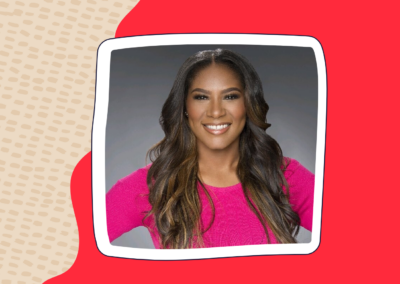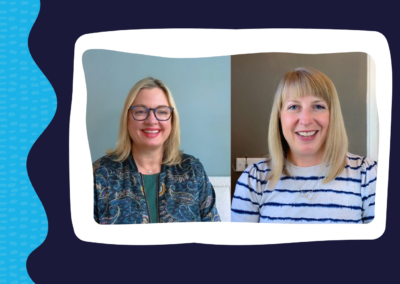The marketing generalist versus specialist conundrum is an ongoing question in our industry. And it’s no surprise given that today’s marketing teams often face requests to do more with less while contending with an always-shifting landscape of channels, algorithms, and trends.
So, let’s start by getting on the same page: a marketing generalist is a professional with competence across different marketing functions (the jack or jill of all trades). A specialist is someone with a clearly defined expertise in a narrow aspect of marketing (the subject matter expert).
Sometimes the transition from generalist to specialist happens by accident through natural career and company progressions. Other times, it’s about following personal passions or wanting to stand out from the crowd and command a higher rate.
If you’re wondering whether it’s time to specialize your career in one area of marketing, read on to learn what it takes and what you’ll gain.
Which types of companies hire specialists vs. generalists?
Small companies, startups, and agencies who work with a variety of clients often want marketing generalists on staff so that their teams are versatile and can easily pivot to new initiatives and own a lot of different functions (often described as “wearing many hats”). Those same orgs might then bring in a specialist as a consultant—for example, to launch an email marketing program or manage paid ad campaigns.
Specialists can also find roles at large organizations with the resources to build full-stack marketing teams composed of experts in their individual areas. Marie Lamonica, Managing Director of Creative Strategy at We Are Rosie, has many years of experience both in house and at agencies and has led the partnerships with some of We Are Rosie’s biggest clients. She is currently seeing an increased demand for in-house specialists.
“Big brands have traditionally housed generalist marketers and then relied on agencies to bring in specialized experience and viewpoints,” she says. “However, as the speed of delivery, results and ROI increases for CMOs and their marketing departments, many are seeking the skills in-house.”
What are the top benefits for marketing specialists?
Thanks to the increase in demand, positioning yourself as an expert may unlock more opportunities. Additionally, those opportunities may have a higher earning potential than generalist roles, as highly specialized services from a subject-matter expert are generally more valuable and garner higher rates.
There’s also been a recent surge in the rise of fractional CMO-style roles. These allow specialists to take on leadership positions in their specific area of expertise, helping companies solve specific, important challenges quickly. (Read about a day in the life of a Fractional CMO Rosie).
Certainly not least of all, becoming a specialist lets you do more of what you love most about your work, and less of what you don’t.
Is developing or focusing on a marketing speciality right for you?
If you’re very early in your career, or if you find that you truly love the “swiss-army knife” approach of marketing generalist roles, you may decide it’s not the right time to pursue a speciality. There’s still a strong need for generalists across a variety of organizations, so although the roles you’re seeking may be more competitive, choosing to remain a generalist is a great career path that preserves your ability to pivot later on.
Anny Weng is a recent addition to the We Are Rosie community who made the decision to specialize in influencer strategy after six years as a digital marketing generalist. “I used to work on a lot of performance marketing tasks with data and spreadsheets,” Anny shares. “At the time, marketing analytics was a hot topic and a highly desirable skill, so a lot of my career mentors encouraged me to specialize in this area. I thought a lot about it, and had to ask myself whether it was really right for me and if I wanted to be competitive in that domain. I decided that it gave me a lot more energy to work with creators who inspire me, and that focusing on influencer strategy was a better path for me.”
How to make the transition from generalist to specialist
Take note of your strengths and ensure they align with your interests
You might already have some thoughts about where you’d like to specialize. Perhaps it’s obvious that you’ve always been amazing at creating complex email workflows to drive sales, and you wish you could do it all day long. Or, maybe you’re more uncertain about where exactly your strengths lie, but you know you love certain tasks of your job more than others.
Reflect on the work you’ve done and think about where you’ve seen the most success as well as enjoyment. It’s important to ensure that your new speciality aligns with work you actually like to do, since you won’t get a break from that topic as a specialist.
See how those strengths match up with the projects in your portfolio
To become a specialist, you’ll need a strong portfolio of sample projects in your area of expertise to demonstrate your success and command of the topic.
This is where the difference between developing a speciality and focusing on one comes into play: if you have a strong generalist background with lots of experience in your chosen speciality AND lots of other types of experience, you should edit your portfolio to focus on projects that relate to your specialist area. But if you discover that you don’t have much work to showcase within your target niche, develop your expertise by getting new experience in that area.
Consider a personal re-brand
There’s a lot of debate in marketing communities about the concept of a personal brand. Some people love sharing their thought leadership on social sites or their own blog, while others feel it isn’t a great use of their time and energy.
Having a personal brand isn’t essential to becoming a great marketing specialist, but it can help you make the transition. Creating a digital space where interested clients can see your expertise on the subject and you can engage with other professionals on relevant topics could establish you as a leader in that field more quickly and more prominently than just taking on specialized roles alone.
Seek opportunities that fit (and know when to say “no”)
All thoughts about personal brand aside, the fact remains that the primary way you become a specialist is by doing specialized work, so you’ll want to go out and seek opportunities within your focus area. You can set up a keyword search on job sites to target roles containing “product” or “email” or “social” to help you discover work that’s a good fit.
Another important part of becoming a specialist is knowing when to say “no, thanks!” to projects that don’t serve the further development or honing of your speciality. It might be hard to turn down work outside of your area of focus, but doing so will ultimately help you become better at doing the specialized work you’ve chosen to pursue.
Anny’s advice to anyone considering a speciality is to trust your gut whenever a new opportunity comes along and resist the temptation to say yes to things outside your target speciality. She wisely notes, “When you are a newbie in the industry, you get FOMO about anything and everything, and you forget that what makes you different from others is actually what will take you the furthest in your career.”
How to handle roadblocks
If you’re struggling to find the right opportunities to propel you forward, consider seeking certifications in your niche to demonstrate your capabilities. You might even want to get more specific with your specialty: instead of just product marketing, become a product-launch specialist to work with startups on announcing new brands, or a pricing model specialist who helps growing companies with free products implement fees for the first time.
Find success as a marketing subject matter expert
In today’s fast-paced, competitive marketing world, the demand for specialists and subject matter experts has never been greater. So if you’ve decided that focusing on a niche is right for you, be sure to hone your skills, tailor your portfolio, develop your personal brand (if you want!), and get comfortable with saying “no” to projects that don’t fit your specialty. You’ll be on your way to thriving in this new season of your marketing career.



